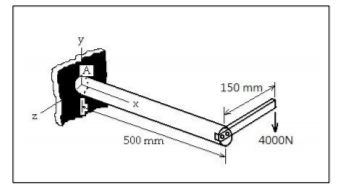

活動名稱
【解題達人! We want you!】
活動說明
阿摩站上可謂臥虎藏龍,阿摩發出200萬顆鑽石號召達人們來解題!
針對一些題目可能有疑問但卻缺少討論,阿摩主動幫大家尋找最佳解!
懸賞試題多達20萬題,快看看是否有自己拿手的科目試題,一旦你的回應被選為最佳解,一題即可獲得10顆鑽石。
懸賞時間結束後,只要摩友觀看你的詳解,每次也會得到10顆鑽石喔!
關於鑽石
如何使用:
- ✔懸賞試題詳解
- ✔購買私人筆記
- ✔購買懸賞詳解
- ✔兌換VIP
(1000顆鑽石可換30天VIP) - ✔兌換現金
(50000顆鑽石可換NT$4,000)
如何獲得:
- ✔解答懸賞題目並被選為最佳解
- ✔撰寫私人筆記販售
- ✔撰寫詳解販售(必須超過10讚)
- ✔直接購買 (至站內商城選購)
** 所有鑽石收入,都會有10%的手續費用
近期考題
【非選題】
四、請詮釋「地景都市(主義」(landscape urbansm)在都市設計上的作用,又若從公 部門或規劃設計專業的立場,推動地景都市的方法與實踐需要什麼前提?你對此規劃 設計範型又有何質疑或批判的觀點?(25分)
四、請詮釋「地景都市(主義」(landscape urbansm)在都市設計上的作用,又若從公 部門或規劃設計專業的立場,推動地景都市的方法與實踐需要什麼前提?你對此規劃 設計範型又有何質疑或批判的觀點?(25分)
【非選題】
【題組】5.2 Assume N instructions are on the correct path of a program and assume a branch predictor accuracy of A. Write the equation for the number of instructions that are fetched on this machine in terms of N and A.
5. Assume a machine with a 7-stage pipeline. Assume that branches are resolved in the sixth
stage. Assume that 20% of instructions are branches. Answer the following questions.
【題組】5.2 Assume N instructions are on the correct path of a program and assume a branch predictor accuracy of A. Write the equation for the number of instructions that are fetched on this machine in terms of N and A.
【非選題】
【題組】(二)上述剪力、扭力矩及彎力矩分別在 A 點造成之應力各為何?(以 MPa 為單位) 【10 分】
題目二:
下圖中之實心圓棒直徑為 40 mm,受到如圖之支撐及負荷,其中 A 點為圓棒上與牆壁
接觸面最上緣之點。
【題組】(二)上述剪力、扭力矩及彎力矩分別在 A 點造成之應力各為何?(以 MPa 為單位) 【10 分】
【非選題】
二、 填充題:<<以下為填充題,請用原子筆在答案紙作答,勿直接填入試卷的空格內>>(共 15 題,每題 2 分)
二、 填充題:<<以下為填充題,請用原子筆在答案紙作答,勿直接填入試卷的空格內>>(共 15 題,每題 2 分)
1. 若已知一個 n 桿機器臂的運動方程式為D(q)q̈+ C(q, q̇)q̇ + g(q) = T,則C(q, q̇)q̇中由哪兩種力矩所構成?
________________________。
IV. Matching. Complete the sentences by choosing the correct answer at the bottom.
(2x5=10)
【題組】 1. Mary and I have a lot of common interests. We _________
(A)are gradually becoming popular with women too.
(B)like sports, dancing, and going to old movies.
(C)found that teachers are the most trusted profession.
(D)changed the course of a huge river to build it.
(E)make an attractive couple.
【題組】 1. Mary and I have a lot of common interests. We _________
(A)are gradually becoming popular with women too.
(B)like sports, dancing, and going to old movies.
(C)found that teachers are the most trusted profession.
(D)changed the course of a huge river to build it.
(E)make an attractive couple.
( )30. Freud 取向的優點在於對人格理論的重大影響,但其理論也遭受諸多批
評,下列何者錯誤?
(A) Freud 的許多概念並非原創,而且理論大多無法驗證
(B) Freud 在發展理論時所運用的資料有所偏頗
(C) Freud 對人性本質的看法太過負面
(D)與Freud 共事的人不贊同他過於強調自我以及精神疾病的社會成因
(A) Freud 的許多概念並非原創,而且理論大多無法驗證
(B) Freud 在發展理論時所運用的資料有所偏頗
(C) Freud 對人性本質的看法太過負面
(D)與Freud 共事的人不贊同他過於強調自我以及精神疾病的社會成因
13.“从宋代起,棉花开始成为一种重要纺织原料……到了元代,丝、麻、棉鼎足而三,明代以后,棉花的重要性超过麻。”出现这些变化的前提条件是
(A)政府的大力推广
(B)棉纺织技术的改进
(C)商品经济的发展
(D)棉花成为经济作物
(A)政府的大力推广
(B)棉纺织技术的改进
(C)商品经济的发展
(D)棉花成为经济作物